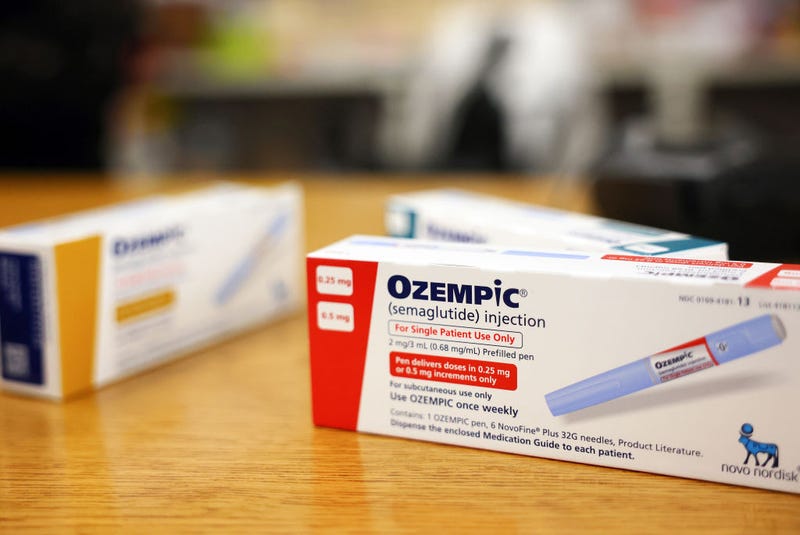
In an effort to make weight loss medication more available and affordable, the Federal Trade Commission has set its sights on what it alleges are “junk patents” held by pharmaceutical companies.
The FTC is attacking patents for 20 brand-name drugs, which includes Novo Nordisk’s Ozempic, as well as its Saxenda and Victoza.
In total, letters were issued to 10 different companies, warning them that certain drug patents were not properly listed. Among the other companies are AstraZeneca, Boehringer Ingelheim, Covis Pharma, GlaxoSmithKline, Novartis, Teva Pharmaceuticals, and Amphastar Pharmaceuticals.
A majority of the drug patents are for Type 2 diabetes, but there are some asthma and inhalers included in the patents that the FTC is challenging.
“By filing bogus patent listings, pharma companies block competition and inflate the cost of prescription drugs, forcing Americans to pay sky-high prices for medicines they rely on,” FTC Chair Lina Khan said in a press release. “By challenging junk patent filings, the FTC is fighting these illegal tactics and making sure that Americans can get timely access to innovative and affordable versions of the medicines they need.”
But there are legal challenges that arise through the FTC’s challenging of the pharmaceutical companies, according to Michael Risch, a Professor of Law at Villanova University.
Risch shared with Audacy that the process for drug makers to patent their formulas includes a filing process with the FDA through its Orange Book, where they list the entirety of the ingredients in the drug. Then, companies who want to make a generic version have to challenge the patent in court, which can result in a 30-month delay or wait for the patent to expire.
In this case, Risch says that the FTC has alleged the drug makers have lied about their ingredients to gain access to that 30-month delay.
“The claim is that they’re listing drugs on this list that aren’t really the ingredients for these drugs,” Risch said. They’re related, or they’re packages, or they’re things that aren’t the core drugs. As a result, when generics want to come in, they have to have this 30-month delay that they shouldn’t have to otherwise be subject to. And so, basically, the patent holders are taking advantage of the process.”
Even more concerning is the role that generic drugs would have in taming the prices of these medications as more people flock to use Ozempic as a form of weight loss.
“I think the data shows that the market is basically cut in half when generics come out, and it goes down from there,” Risch said. “So, for consumers, they’re incredibly important... You’re paying $10 versus $25 or $50 if you have insurance.”
